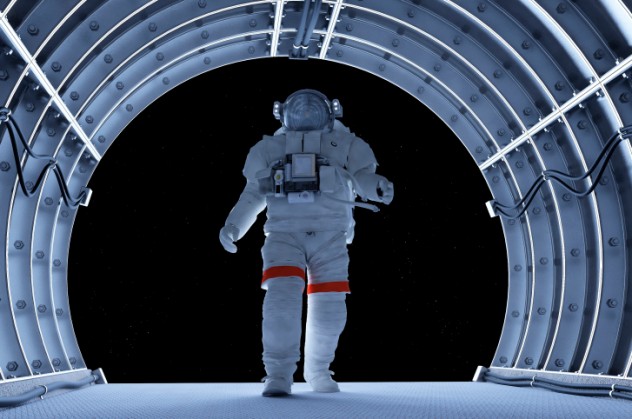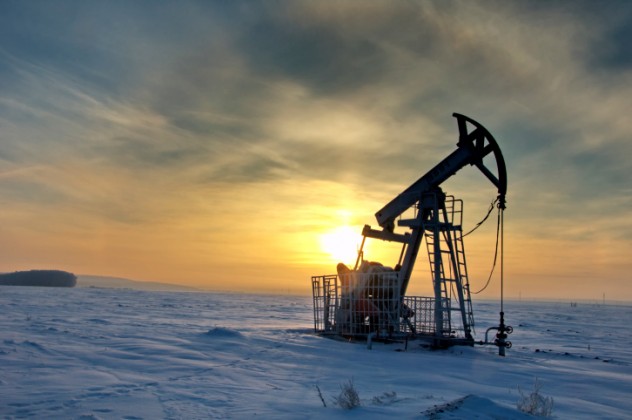 Movies and TV
Movies and TV  Movies and TV
Movies and TV  History
History 10 Things You Never Knew About Presidential First Ladies
 Movies and TV
Movies and TV 10 Zombie Movies That Will Actually Terrify You
 Humans
Humans 10 Times Scientists Were Absolutely Sure… and Absolutely Wrong
 Our World
Our World 10 Pivotal Moments for Life on Earth
 Movies and TV
Movies and TV 10 Most Realistic Medical TV Shows of All Time
 Creepy
Creepy 10 Eerie & Mysterious Ghosts of the Pacific Coast
 Weird Stuff
Weird Stuff 10 Typos That Accidentally Changed History
 History
History 10 Times Trickery Won Battles
 Technology
Technology 10 Awesome Upgrades to Common Household Items
 Movies and TV
Movies and TV 10 Movie Flops That Found Their Way to Cult Classic Status
 History
History 10 Things You Never Knew About Presidential First Ladies
 Movies and TV
Movies and TV 10 Zombie Movies That Will Actually Terrify You
Who's Behind Listverse?

Jamie Frater
Head Editor
Jamie founded Listverse due to an insatiable desire to share fascinating, obscure, and bizarre facts. He has been a guest speaker on numerous national radio and television stations and is a five time published author.
More About Us Humans
Humans 10 Times Scientists Were Absolutely Sure… and Absolutely Wrong
 Our World
Our World 10 Pivotal Moments for Life on Earth
 Movies and TV
Movies and TV 10 Most Realistic Medical TV Shows of All Time
 Creepy
Creepy 10 Eerie & Mysterious Ghosts of the Pacific Coast
 Weird Stuff
Weird Stuff 10 Typos That Accidentally Changed History
 History
History 10 Times Trickery Won Battles
 Technology
Technology 10 Awesome Upgrades to Common Household Items
10 More Controversies Of The Future
We’ve talked before about how our human penchant for argument is probably gonna screw up the future as much as it has the present. But the full extent of the screaming debates we’re likely to have in the next 50 years is so unimaginably ginormous it deserves another look. Think gun control or gay marriage are controversial topics? Buddy, you ain’t seen nothin’ yet.
10The Death Of Privacy

You’ve heard of Google Glass. It’s a wearable computer that looks (surprise!) an awful lot like a pair of glasses. With the wink of an eye it’s capable of taking pictures or video or doing a trillion other absurdly clever things. And it could be about to make society a whole lot nastier.
The problem comes from facial recognition technology. Studies have shown that this tech can already pick people out from a crowd and pull up almost anything on them—from Facebook pictures to social security numbers to Linkedin profiles and more. It has huge potential for abuse, but more than that, it could conceivably mean the death of privacy.
Imagine a world where everyone who passed you in the street instantly knew everything about you, from the deeply personal to the painfully embarrassing to your address and phone number. Members of the public, work colleagues, potential dates, police officers—all would be privy to stuff you probably wouldn’t want strangers to know. Sound like a nightmare? Well, the moment someone combines facial recognition software with something like Google Glass, it will probably become reality. Google themselves are currently against the idea, but the potential is there and one day . . . who knows? And when that happens, you can prepare yourself for the mother of all ethical debates.
9The Fate Of Climate Refugees

Even if you think manmade climate change is a load of liberal nonsense, it’s impossible to deny that the planet is getting warmer. Right now, we’re on course for a catastrophic temperature rise which will almost certainly flood entire countries and displace millions of people. So the question is: Where are all these people going to go?
This isn’t just an academic issue. Somewhere like Bangladesh faces the very real possibility of largely vanishing in the next 50 years, displacing somewhere around 30 million people. That’s the population of Texas and Oregon combined, suddenly cast adrift with no home to return to. It’s unlikely the beleaguered Bangladeshi government would be able to support them, so where would they go? India? Nice thought, but India is already building a razor-wire fence specifically to keep displaced Bangladeshis out. China? Get real. So where?
The answer is: We don’t know. And that’s just in one corner of Asia. Research suggests anywhere from 150 million to one billion could become climate refugees globally. With such a stupendous number of people suddenly made homeless, things could start to get very ugly indeed.
8Who Owns Outer Space?

It seems like a dumb question, the sort of thing a first grader might ask: “Who owns space?” But this apparent slice of idiocy is actually more subtle than you think. And it may just be about to become a major source of heated debate.
Planetary Resources is a company owned by (among others) James Cameron and Larry Page. It was founded for the sole purpose of mining asteroids for precious minerals. Once the technology is perfected, it’s a plan that could net them billions. But no-one knows if it’s legal. Already, a titanic battle is brewing to determine whether Cameron and co might be breaking international law by laying claim to an asteroid.
See, in 1967, most nations signed the Outer Space Treaty, which states that no nation can lay claim to any “celestial bodies.” Sounds like an open and shut case, until you remember that Planetary Resources ain’t a nation but a company. Their lawyers argue that precedent already exists for the sale of moon rocks, so asteroids must be fair game, a claim the law has yet to buy. If Cameron’s legal team wins, the future of space exploration may well be companies blasting out to the edges of the solar system with the sole intention of grabbing as much wealth as possible. If they lose, the whole of space will remain like Antarctica—a scientific zone free from the profit motive. With Planetary Resources looking to start mining by the 2030s, it’s a choice we’re gonna have to make soon.
7Old vs. Young

Thanks to decades of advanced medical care and modern sanitation, most of us rich Western types are living longer. Much longer. In fact, the Baby Boomer generation can currently expect to sail right past retirement age and into a long, empty future of pottering around Florida golf courses. In Japan there are already nearly three pensioners for every child under 15, with four in 10 Japanese expected to be over 65 by 2050. And the cost of keeping this expanding bubble of pensioners alive is going to be enormous.
In Britain, it’s estimated that spending on the elderly will account for up to one-fifth of GDP by 2060—a number that’s basically unsustainable. Economists in Europe are currently predicting a century of sluggish growth thanks to this demographic shift. Meanwhile in America, the government is faced with the choice of spending now, or losing more when Baby Boomers start succumbing to chronic diseases. It’s a problem with the potential to cause huge social unrest, as politicians start cutting back on public services for the young or inviting in large numbers of immigrants to pay for this swarm of economically inactive retirees. Is our future one of a competition between young and old? Only time will tell.
6Virtual Abuse

If you fancy a disturbing ethical dilemma, they don’t come much more unsettling than this. Late last year, two Dutch researchers floated a controversial idea of how we might deal with pedophilia in the near future. Given that potential abusers are going to seek out videos of children being exploited anyway, they reasoned it was better to legalize an artificial alternative than let the market for real child abuse grow. To this end they suggested that governments could start making and discreetly marketing virtual child pornography.
If you’re an average person, your instinctual reaction to reading that was probably something akin to disgust. But think about it, if it was proven that a certain type of pedophile was less likely to abuse someone with such an outlet, wouldn’t it make sense to give it to them? Even though it might go against every gut instinct we have, shouldn’t we at least try? Or would the simple creation of these images be an ethical stretch too far? As CGI becomes increasingly lifelike and our scientific understanding of human sexuality grows, the chance that this issue will resurface becomes only greater. It could be that our treatment of stuff like abuse in the future comes down to choosing a lesser of two evils.
5A Deadly Journey

If you’re above a certain age, you might remember when science fiction was full of glorious promises that we’d have colonies on Mars by now. Disappointing as it is, there’s a very good reason why we don’t—a trip to Mars with current technology has an absurdly high chance of killing you. Scientists estimate that there’s a 10 percent chance of a massive burst of solar radiation wiping out a Mars explorer crew, with the odds rising to 30 percent that a less-deadly blast will just kill some of them. Unsurprisingly, NASA isn’t too hot on odds like that and refuses to expose its astronauts to such risk. But here’s the thing: private companies have no such qualms. And that’s the problem—can we really send people out to near-certain death, even if they want to go?
Now, the obvious answer is “yes.” Exploration has long been characterized by foolhardy daredevils risking life and limb to bring back some nugget of knowledge. But then you realize that a giant screw-up could set space exploration back decades. Remember the Hindenburg disaster? That single image of a zeppelin bursting into flames killed off a form of air travel that was observably safer and more comfortable than any other. The Challenger Shuttle disaster of 1986 set NASA back years. What would the image of a small crew being lost in the interstellar void, many million miles from home do for space exploration? Well guess what? In 2018, we may find out.
4The Global Resources Battle

It almost doesn’t bear thinking about: a world in which water, food, and energy are in short supply and governments have to play dirty to keep their populations sated. I say “almost” because soon we won’t have a choice. According to experts, this nightmare scenario is only a few short years away.
Now this is gonna be big—really big. The UK’s former chief scientific adviser recently noted that governments are already participating in land grabs to secure mining rights, a taster of what’s to come. When the battle to secure water and food supplies really kicks off, we’ll have one heck of an ethical dilemma. On the one hand, it might be impossible to remain a major global player without becoming increasingly heartless. Ideas like caring for our poor, upholding democracy, and respecting sovereign nations may have to go out the window if we want to stay at the top of the economic game—a process politicians euphemistically call “being more like China.” On the other, if we decide to retain our compassion, we may very well be regulated to backroom status; the doddering former superpower that can’t accept it now has no place on the world’s stage. If you thought the economic crisis polarized public opinion, wait till this hits. It’ll be a battle for the future and the souls of our respective nations—with the livelihoods of all our countrymen at stake.
3The Future Of Sex

Ever since the first caveman used his first tools to carve something obscenely pornographic, it’s been obvious that human history consists largely of exploiting new technologies for sexual gratification. Photography, cinematography, the internet, vulcanized rubber, and the printing press were all used to in some way facilitate self-abuse moments after being invented, and the future probably won’t be any different. But it may be a heck of a lot more visible.
To put it bluntly: I’m talking about robot hookers, a concept so ludicrous I can’t believe I just typed those words. But make no mistake, there’s a very real chance that 2050 could be a world where prostitution involves manipulating advances in AI and robotics for our, uh, pleasure. We’re close to making computers that can outperform the human brain, and AI will probably be with us by 2030-ish. Throw in some major advances in robotics and it’s easy to imagine some sleazy businessman of the future setting up the first automated brothel. At that point, there’s gonna be a culture clash. When machines can play out our every fantasy will we welcome the development? Or is there going to be a huge puritanical backlash against something so creepy? Our entire understanding of human sexuality may well be turned on its head within our short lifetimes, and the fallout from such a shift will undoubtedly be immense.
2The Future Of Food

The Meat Crisis refers to the way our global love of a good, juicy steak may yet doom the entire planet. From advanced Western nations to their developing counterparts, meat consumption is on the rise; from an average 20kg per person in 1990, to a predicted 50kg by 2030. Since roughly a third of the usable land on our planet is already put aside for raising livestock, that’s a heck of a lot of meat. Unless we want to exacerbate our entire resources battle, we’re gonna have to start looking for alternatives—and that’s where the controversy comes in.
A lot of us live in cultures which really, really don’t like the state tampering with our food choices. When NYC attempted to restrict the sale of large sodas last year, the backlash threatened to engulf the entire visible universe. The idea of GM foods and fluoride in water still sends people into a lather of anger. So what do you think will happen when governments start pushing artificial meat on us? Prediction: People will respond in the exact same way they do whenever anyone tries to push anything on them—with plenty of outrage.
1Mass Poverty

Living in rich nations with burgeoning middle classes, most of us reading this have gotten used to a certain level of comfort. But, in Europe and America, all of that stability is finally starting to fade.
In a recent study, the International Red Cross declared that “whilst other continents successfully reduce poverty, Europe adds to it,” before noting that the future for the EU was likely one of mass-exodus and grinding poverty. Across the pond, around half of all Americans now live in or within a couple of paychecks of poverty, and this downward trend shows no sign of reversing. As life slowly gets better for people in the developing world, it’s getting slowly worse for us in the (formerly) rich West—and it seems that’s something we’re gonna have to get used to. It’s now inarguable that most of today’s middle-class children will be worse off than their parents, while those at the bottom will have it worse than ever.
In a few short decades all those dreams of prosperity and social climbing will be exactly that: dreams. And that’s going to create a bleak future for a lot of people. Will we see a mass exodus of the young and talented, like Portugal? Or will there be just be anger, wide and diffuse, at the perceived unfairness of life? Right now we don’t know. But the scaling down of expectations and life chances for our middle class is probably going to go down as one of the bleakest and most controversial periods in Western history.








